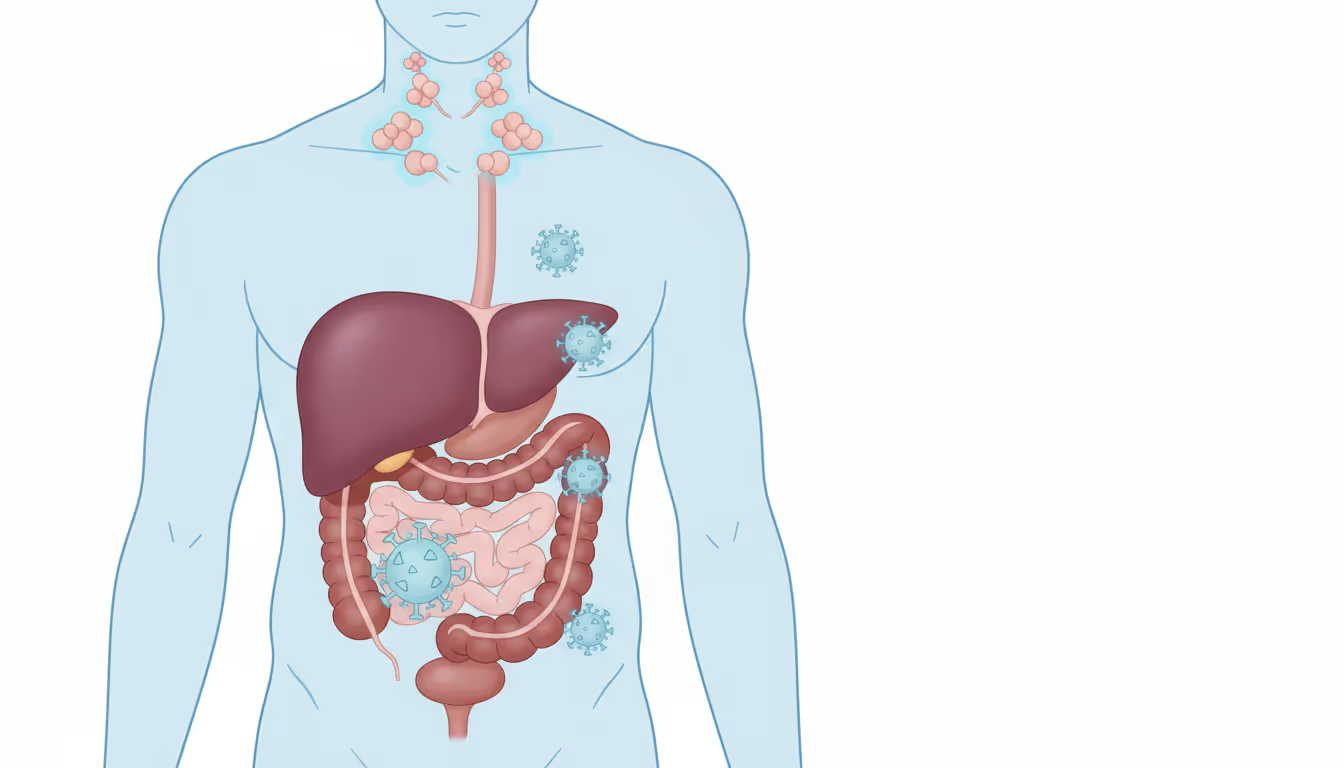
Mononucleosis, often referred to as "mono" or the "kissing disease," is an infection caused by the Epstein-Barr virus (EBV), also known as human herpesvirus 4 (HHV-4). This condition results in an elevated number of white blood cells, particularly monocytes. The virus is typically transmitted through saliva. The incubation period for the virus ranges from four to eight weeks. Common symptoms include fever, fatigue, sore throat, and swollen lymph nodes. The infection can also lead to liver inflammation, known as hepatitis, and spleen enlargement. To prevent spleen rupture, individuals should avoid engaging in vigorous contact sports. The illness tends to be milder in young children. Although many people are exposed to EBV, not everyone develops mononucleosis; most adults have antibodies against EBV, indicating past infection. Treatment generally involves rest, pain relief, and occasionally antiviral medications. For more information, see also Epstein-Barr virus.




